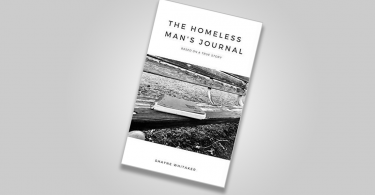The government plans to cap the number of books that inmates can have in their cells has been scrapped after a year-long campaign led by various literary figures. It is a small, yet hopeful victory for prisoners as well as those that campaigned on their behalf, which included Julian Barnes and poet laureate Carol Ann Duffy. Although prisoners are now allowed up to twelve books in their cells, they are still banned from being sent books by friends and family, which campaigners say they will continue to fight against.
An important victory, but the campaign continues http://t.co/beGj9i1am4 #booksforprisoners
— English PEN (@englishpen) November 10, 2014
The ‘get tough’ regime
The plans for the ban originally came out of a ‘get tough’ regime introduced in 2013, an irrational and cruel punishment system that grabbed headlines with the appareance of action, but in reality all this did was restrict any opportunity of education or rehabilitation for prisoners.
My lecturer explained the regime to me with an analogy about scones (why scones, I don’t know). The analogy worked like this: imagine you have ten, then when the regime changes came about, nine were taken away from you. After this recent campaign, one is given back. This reversal is a positive step forward, but it can also just be seen as retracing one step that went backwards anyway.
Education is required for rehabilitation
We are always being told that the point of prison is to rehabilitation and also to prevent the offender from committing further crimes. How, though, will rehabilitation happen without education? How can someone have faith in society and be willing to contribute when they can’t receive cards, small gifts or essentials such as underwear from their family? If ties cannot be kept and relationships cannot be nurtured, then life after release can be very difficult.
Yet, access to prisons libraries is restricted and is a privilege that must be earned, which seems bizarre as many studies have shown improving literacy rates would help reduce reoffending rates. Actions like these are simply counterproductive.
In Brazil, prisoners get four days taken off their sentence for every book that they read (they can claim a maximum of 48 days) and, to prove that they have read the book, they write an essay about it. A Sao Paulo lawyer who runs a book donation project for prisons has said about the initiative:
“A person can leave prison more enlightened and with a enlarged vision of the world…without doubt they will leave a better person.”
An obvious choice
Reading is essential to learning and understanding (my lecturers seem to be constantly telling me this) and I have found it is the key to good marks. The wider you read, the greater your understanding, and a greater understanding of the world is invaluable. Reading promotes better communication, improves vocabulary, concentration and provides mental stimulation. Empathy can be improved (surely vital in rehabilitation) as well as mental wellbeing.
Looking at the cost of a book against the potential for good also shows this has been the right decision. To think about cost against the possibility of rehabilitation is short-sighted and counterproductive. If it was essential to think in practical terms only, allowing prisoners more books would still be better financially due to the cost of re-incarcerating hundreds if not thousands of reoffenders, which could be prevented by a few books.
Weighing up all aspects, it’s an easy decision.








